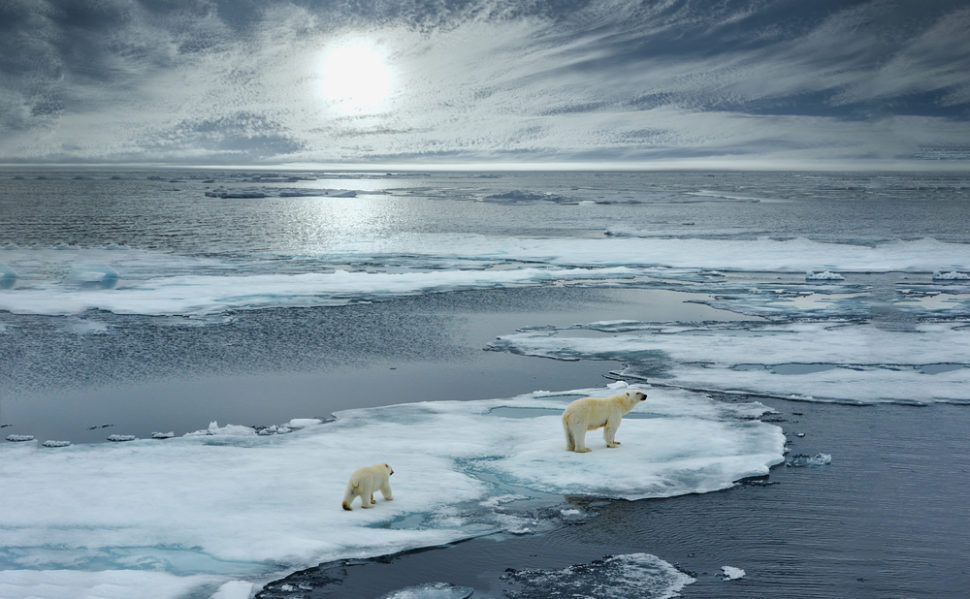Last January, during a massive snowstorm over the American East, President Donald Trump once again cited the extreme cold weather in a tweet to cast doubt on global warming.
This isn’t the first time. He did so every winter in the last few years.
Like many people who dismiss the fact that Earth is warming, president Trump doesn’t seem to grasp the difference between climate and weather.
If weather is the day-to-day atmospheric conditions, climate refers to the same patterns but over relatively large areas and long periods of time.
Despite all the winter severity, the year 2018 followed the global warming trend to make the last four years (2015-2018) the hottest ever recorded. Scientists fear the next few years (2018-2022) may bring an even hotter spell.
That said, maybe we should use climate terminology more carefully, but not for the reasons listed by deniers.
What we should call it: global warming, climate change? Maybe neither because they could be both misleading.
Read More: The Earth is now Entering “The Plastic Age”
The Argument for Climate Disruption
Even though the terms “global warming” and “climate change” are close, and often used interchangeably, they do not describe the same thing.
Think of global warming as body fever. It could be the most apparent symptom, but not the only one of the underlying disease. Climate change encompasses global warming, its side-effects (like sea level rise and melting glaciers), and other manifestations of the planetary disorder.
The term “global warming” refers only to the long-term rise in average temperatures on the planet’s surface.
In use since the 1980s, it first appeared in a 1975 article by geochemist Wallace Broecker “Climatic Change: Are We on the Brink of a Pronounced Global Warming?”
Climate change comprises global temperature change but also changes in other meteorological patterns such as precipitation, wind, and the strength and frequency of extreme weather events such as flood and drought spells.
While global warming is more felt on a global scale, climate change effects can be global, regional and in some cases even local in nature.
Read More: Study Claims Climate Change Could Soon Eradicate Clouds
Some scientists think the term “climate disruption” is more precise to describe the ongoing situation.
If it sounds generic, it’s exactly because of that. It’s more appropriate because it’s more comprehensive than “global warming” and even “climate change”.
Doug Sisterson, a climatologist at Argonne National Laboratory, thinks that although the notion of “change” often has a positive connotation, it shouldn’t be used in this context. But his reasons for proposing “climate disruption” go beyond that.
“Maybe we should start talking about climate disruption, because the things I’m talking about would seem to be highly disruptive. And so maybe the better way to characterize what’s happening with these extreme weather events is to think of it as climate disruption. Maybe it more accurately represents the journey we are about to be embarking upon,”
Read More: Milestone: Australia Chooses Climate Change Over Coal
But the term climate disruption appeared several years before Sisterson brought it up.
John Holdren, the White House senior science adviser under President Obama, proposed using the term “global climate disruption” on several occasions.
“We should call it global climate disruption. Although the rising average global surface temperature is an indicator of the degree of disruption that we have imposed on the global climate system, what’s actually happening involves changes in circulation patterns, changes in precipitation patterns, and changes in extremes. And those are very different in different places.”
It isn’t about semantic nitpicking. Compared to change, disruption bears a more negative sense that doesn’t do the situation a disservice. It also implies the “change” in this case is unplanned, unwanted, and unexpected. In other words, it’s a human-induced disruption. You can find hints of this in the very early scientific literature about climate change, which called it “Inadvertent Climate Modification”.
It’s hard to say if this name will be adopted by the wider public, but a more important question to ask may be whether climate action will be taken up by the wider public.
With the rise in electric vehicle sales, renewable usage, and government agreements, the future does look hopeful, albeit a little uncertain.



















It doesn’t matter what the name is. If people and governments don’t do anything about this soon we’re all doomed. I think it’s time for people to stop arguing about what to do or what to call things and just get started on reversing this mess we’ve made.
I think it does matter what we call it. People have become so apathetic to the words now that they don’t mean anything. Like with everything else, the best way to motivate people towards change is through fear.